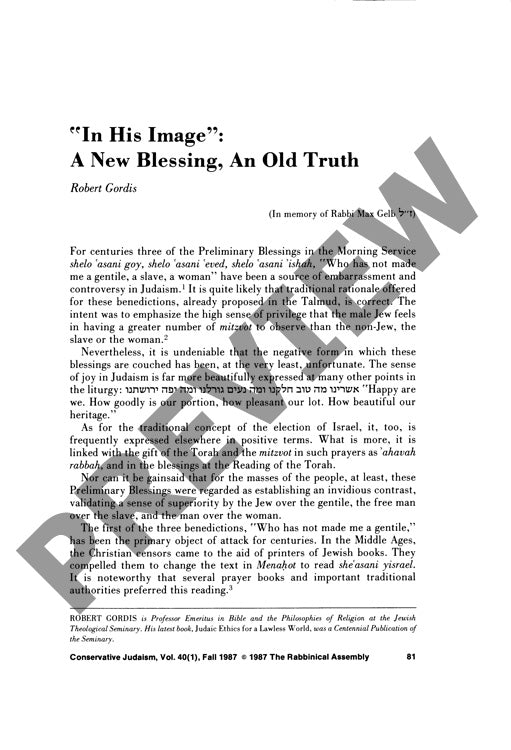In His Image a New Blessing an Old Truth
Couldn't load pickup availability
Three controversial Jewish morning blessings - thanking God for not making the worshipper "a gentile, a slave, or a woman" - have long created theological tension between Judaism's core belief in human dignity and seemingly exclusionary prayer language. Historical analysis of Talmudic sources, medieval texts, and Genizah fragments reveals how these negative formulations, originally meant to express gratitude for additional religious obligations, became increasingly problematic over time. Christian censorship historically forced alterations to these prayers, while positive alternative formulations lay hidden in early liturgical fragments discovered by Professor Louis Ginzberg. Rabbi Max Gelb's proposed revision, replacing the third blessing with "who has made me in His image," offers a transformative solution by emphasizing the fundamental Jewish doctrine of b'tzelem Elohim - that all humans are created in God's image. This revision, adopted by the Joint Prayer Book Commission of the Rabbinical Assembly in 1944, achieves multiple aims: it addresses contemporary gender equality concerns, restores a cardinal Jewish principle that had diminished during medieval times, and transforms exclusionary language into inclusive theological affirmation. Through textual criticism, historical contextualization, and liturgical innovation, this research demonstrates how Gelb's revision represents both textual authenticity and theological progress, reinstating universal human dignity as the foundation for Jewish concepts of freedom, equality, and justice in modern democratic society.

More Information
-
Physical Description
-
Publication Information
Published 1987
ISBN
-
Publication Credits
Robert Gordis

